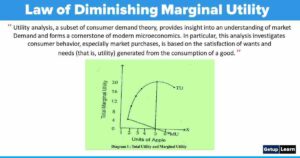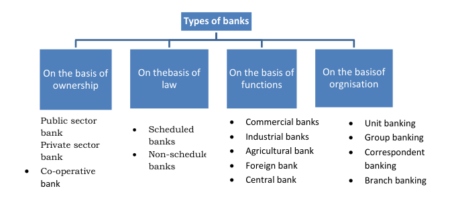Table of Contents
What is Inflation?
Inflation means a steep increase in prices, resulting in a decrease in the value of money over a period of time. Or you can say, Inflation is the annual rate of increase in the price level.
OR you can say “Inflation” is commonly understood as a situation of a substantial and rapid general increase in the level of prices and consequent deterioration in the value of money over a period of time.
In this article, we will be discussing inflation and its impact on the business sector and the causes of inflation, the effects of inflation and additionally the various methods of controlling the inflation.
Impact of Inflation on the Business Sector
We have discussed the impact of inflation on the business sector which is given below:
- Reduced Demand for Products and Services
- Increased Product Price
- Market Bubbles
- Economic Downturn
- Reduced Purchasing Power
Reduced Demand for Products and Services
In situations of high inflation, both savings and investments are negatively influenced in a negative manner. Because of the low demand for goods and services, most businesses get adversely affected. Many customers tend to shift towards Internet marketing, as the prices of goods and services are comparatively cheaper on the websites.
The services provided by the business portals also get affected in a negative manner because of a reduction in demand for goods and services.
Increased Product Price
There are primarily two key factors responsive to the cost-push inflation. The first is the high price of raw materials and the second is the increase in the rate of wages. In fact, the rise in prices in any of the production factors like land, labour, material and technology leads to a price rise of the products.
Profit margins of businesses can get affected whenever the production or operation cost is increased. The increased costs of operations are transferred to the customers by way of increased prices which gives rise to cost-push inflation.
Market Bubbles
When the central bank maintains the rate of inflation in the economy within limits artificially, different forms of market bubbles are created. Conventionally, easy credit and an increased supply of money are related to low rates of interest. It creates hypotheses and market bubbles in the economy.
Economic Downturn
Sometimes, downturns in the economy are resulted due to the combined effect of high prices and economic bubbles. The bursting of such bubbles takes place when some remedial measures are taken. The impact of such situations is mostly realised by small businesses and workers.
The employment industry faces the worst of high inflation rates. It leads to an increased rate of unemployment and also decreases consumer spending.
Reduced Purchasing Power
The reduction in the purchasing power of currency and its depreciation are the two key and immediate outcomes of inflation. It is the retired individuals with limited or fixed incomes who are affected the worst by depreciation as the purchasing power of their money gets substantially reduced.
However, individuals who are not dependent on a fixed income are less affected since they can counteract the depreciation by raising their fees.
Causes of Inflation
Here we have some major causes of inflation:
- Over-expansion of Money Supply
- Expansion of Bank Credit
- Deficit Financing
- Ordinary Monetary Factors
- Non-monetary Factors
Over-expansion of Money Supply
Many times, a remarkable degree of correlation between the increase in money supply and the rise in the price level may be observed.
Expansion of Bank Credit
The rapid expansion of bank credit is also responsible for the inflationary trend in a country.
Deficit Financing
The excessive doses of deficit financing, which can also purpose reckless spending, may make contributions to the growth of the inflationary spiral in a country.
Ordinary Monetary Factors
Among other monetary factors, influencing the price trend in an economy, the major ones are listed as follows:
High Non-development Expenditure: The continuous increase in public expenditure and especially, the growth of defence and non-development expenditure.
Huge Plan Investment: The huge plan investment and its high rate of growth in every plan may lead to excess demand in the capital goods sector, so that the industrial prices may raise.
Black Money: A few economists have condemned black cash, which is in the arms of tax evaders and black marketers, as a critical supply of inflation in a country. Black cash encourages lavish spending, which causes excess demand and an upward push in prices.
High Indirect Taxes: Incidence of high commodity taxation. The prices tend to rise on account of high excise duties imposed by the government on raw materials and essential goods.
Non-monetary Factors
There are various non-monetary factors that may cause a rising-price trend in a country. They are as follows:
High Population Growth: Undoubtedly, the rising pressure of demand, resulting from a growing population and money income, will cause a high price rise in an over-populated country
Natural Calamities or Bad Weather Conditions: bad weather conditions, Vagaries of monsoon, droughts, and failure of agricultural crops have been responsible for the price spurts from time to time, in many underdeveloped countries. Agricultural prices are most sensitive to inflationary forces in India.
Speculation and Hoarding: speculative and Hoarding activities, that is, corruption at every level in both private and public sectors or so on, are also responsible to some extent for aggravating inflation in a country.
High Prices of Imports: Inflation has also been inflicted on some countries through the import content used by their industries.
Monopolies: Monopoly profits and unfair trade practices by big industrial houses are also responsible for the price rise in countries like India.
Effects of Inflation
we have indexed right here diverse effects of inflation:
- Economic Effects of Inflation
- Effects on Production
- Distributional Effects
- Effect on Groups
- Deterioration in Savings
- Distortion of the Budget and Vicious Circle
- Disturbance in the Planning
Economic Effects of Inflation
The effects of inflation on the economic system may be classified into three kinds as follows:
- Effects on production, that is, changes in the tempo of economic activity,
- Effects on income distribution, that is, redistribution of income and wealth,
- Effects on consumption and welfare.
Effects on Production
The rising prices breed optimistic expectations within the business community in view of increasing profit margins, because the price level moves up at a faster rate than the cost of production. Businessmen are induced to invest more, and as a result, employment, output, and income increase.
But, there is a limit to it set by the employment ceiling. Once the full-employment stage is reached in an economy, a further rise in prices will not energize production, employment, or real income, due to physical limitations.
The disastrous consequences of inflation on the economic system may be stated briefly as follows:
- Maladjustments
- Hindrance to Capital Accumulation
- Speculation
- Hoarding and Black Marketing
- Distortion of Production Pattern
- Distortions in Resource Allocation
Distributional Effects
Inflation redistributes income because prices of all factors do not arise in the same proportion. for the reason that impact of inflation on the profits of different instructions of earners varies, there are extreme social consequences.
During inflation, the distributive share accruing to the profiteers increase more than that of wage earners or fixed-income earners, such as the rentier class.
All product traders and speculators gain during inflation because of the windfall profits which has arisen price to rise at a faster and a higher rate than the cost of production; wages, interest, and rent do not increase rapidly and are more or less fixed.
Effect on Groups
Debtors and Creditors
Generally, debtors gain and creditors lose during inflation. Gain accrues to a debtor because he repays a loan at a time when the purchasing power of money is slower than when it was borrowed.
The creditor, alternatively, is a loser at some stage in inflation, since he receives, in impact, less in goods and offerings than he would have received in instances of low charges.
Business Community
Inflation is welcomed by means of entrepreneurs and businessmen as they stand to earnings by means of elevating prices. They find that the fee of the then inventories and stock of products is rising in cash phrases.
They also find that prices are rising faster than the costs of production, so the business community, therefore, gets supernormal profits during the period of inflation, and those profits maintain to grow so long as the charges upward thrust.. their profit margin is greatly enhanced.
Fixed Income Groups
Inflation hits salary earners and salaried human beings very hard. even though wage earners, via the grace of trade unions, can chase the galloping charges, they seldom win the race.
since the wages no longer enhance on the identical price and at the same time as the overall rate level, the value of the living index raises, and the real earnings of the wage earner decreases. furthermore, in seeking to push up wages to sustain their actual profits, salary earners result in price-push inflation and, in the system, get worse their role.
Investors
Individuals who spend money on debentures and glued-interest bearing securities, bonds, and so on, lose during inflation. however, the traders in equities gain because a greater dividend is yielded as a result of high profits made by the joint-inventory agencies at some stage in inflation.
Deterioration in Savings
Continuous inflation reduces the actual worth of financial savings in the end. Savers are also adversely affected when the annual rate of inflation is exceeding the current rate of interest.
Distortion of the Budget and Vicious Circle
The budgetary provision for public spending proves to be inadequate, due to the rising costs caused by inflation. A vicious circle is developed.
Disturbance in the Planning
Plan programmes and allocation of resources may be get disturbed due to resource constraints caused by continuous inflation and rising factor. The investment allocation based on the current price level at the beginning of a particular obviously proves to be inadequate in the later years of the plan.
FAQs
What is Inflation?
Inflation means a steep increase in prices, resulting in a decrease in the value of money over a period of time. Or you can say, Inflation is the annual rate of increase in the price level.
What is the impact of inflation on the business environment?
We have discussed the impact of inflation on the business environment which is given below:
1. Reduced Demand for Products and Services
2. Increased Product Price
3. Economic Downturn
4. Reduced Purchasing Power
5. When the central bank maintains the rate of inflation in the economy within limits artificially, different forms of market bubbles are created.
What are the Causes of Inflation?
Here we have some major causes of inflation:
1. Over-expansion of Money Supply
2. Expansion of Bank Credit
3. Deficit Financing
4. Ordinary Monetary Factors Such as:
(a) The continuous increase in public expenditure
(b) The huge plan investment and its high rate of growth in every plan may lead to excess demand in the capital goods sector, so that the industrial prices may raise.
(c) Increase in Black Money





